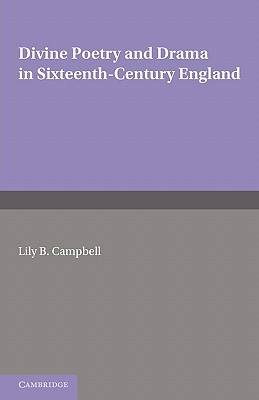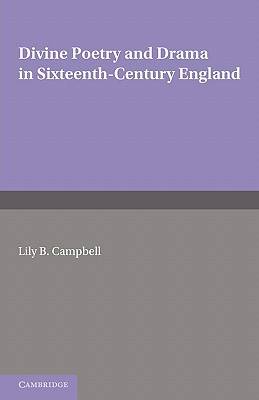
- Afhalen na 1 uur in een winkel met voorraad
- Gratis thuislevering in België vanaf € 30
- Ruim aanbod met 7 miljoen producten
- Afhalen na 1 uur in een winkel met voorraad
- Gratis thuislevering in België vanaf € 30
- Ruim aanbod met 7 miljoen producten
Zoeken
€ 60,95
+ 121 punten
Omschrijving
The Reformation and the impact of the Renaissance were almost simultaneous in England. So the English versions of the Bible appeared at much the same time as the new, worldly forms of verse and drama. It was not long before serious-minded poets and playwrights used the Bible thus made available for new forms of religious verse. There was an important but neglected succession of writers who did this, culminating in Milton. The forms involved include the sonnet, the miniature epic and the popular drama. Miss Campbell treats both dramatic and non-dramatic literature. She shows that both kinds were new and not prolongations of medieval forms: the 'divine' lyric is a counterpart of the new secular lyric, and professedly hostile to it; and the 'divine' drama is an adaptation of current popular forms and not a development of the mystery play.
Specificaties
Betrokkenen
- Auteur(s):
- Uitgeverij:
Inhoud
- Aantal bladzijden:
- 280
- Taal:
- Engels
Eigenschappen
- Productcode (EAN):
- 9780521137010
- Verschijningsdatum:
- 2/03/2011
- Uitvoering:
- Paperback
- Formaat:
- Trade paperback (VS)
- Afmetingen:
- 140 mm x 216 mm
- Gewicht:
- 358 g

Alleen bij Standaard Boekhandel
+ 121 punten op je klantenkaart van Standaard Boekhandel
Beoordelingen
We publiceren alleen reviews die voldoen aan de voorwaarden voor reviews. Bekijk onze voorwaarden voor reviews.











